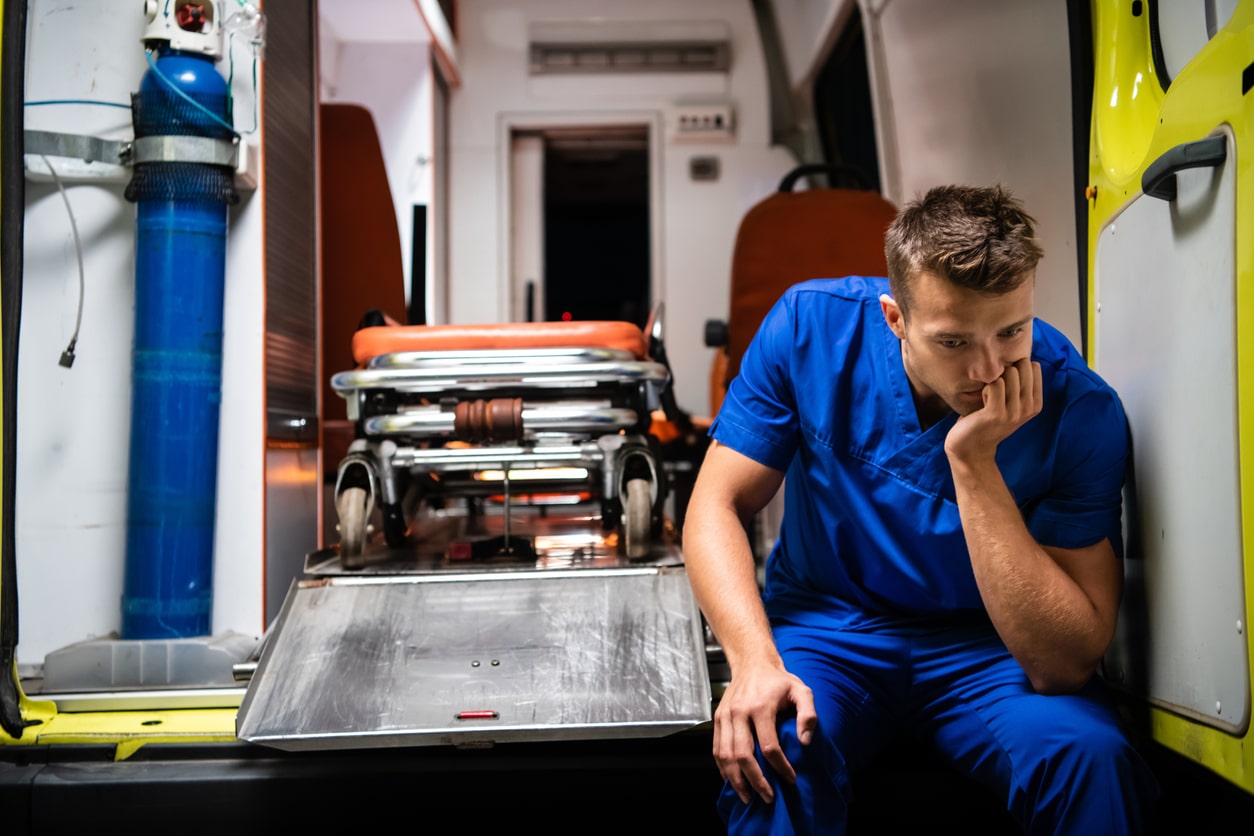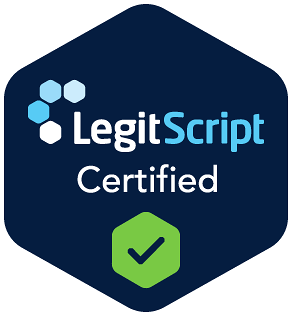First responder addiction treatment helps those on the front lines of emergencies and disasters due to an increased risk of mental health and substance use disorders. Firefighters, military personnel, EMS workers, police, and other first responders face significantly more on-the-job stress than most of the general population. This often leads to self-medicating with drugs and alcohol.
North Atlanta Behavioral Health provides addiction treatment services for first responders as well as dual diagnosis treatment. Oftentimes, first responders develop underlying mental health disorders, like post-traumatic stress disorder (PTSD), as a result of their stressful careers.
Our programs offer hope to those who serve our communities—often at the risk of their own health and safety.
Addiction Among First Responders
It’s no secret that first responders face more on-the-job stress than most of the general population. While they are trained to face traumatic situations, sometimes, the stress of their jobs can be too overwhelming. Not only that, but the work culture of many first responders, like police, firefighters, and military staff, can stigmatize those seeking help.
When a high-stress job meets a work culture that shames those who struggle as being “weak” or “not made for this type of work,” first responders often try to cope with their problems on their own and in secret. All too often, this leads to self-medicating with drugs or alcohol.
Even among the general population, “More than one in four adults living with serious mental health problems also has a substance use problem,” according to the Substance Abuse and Mental Health Services Administration (SAMHSA).
But, how prevalent are behavioral health issues among first responders compared to the general population?
Behavioral Health Issues Among First Responders
Addiction often develops as a maladaptive coping mechanism for an underlying mental health condition. Since first responders face more stress and trauma than the general population, they are more likely than the general population to develop a mental health disorder. Thus, they are also more likely to develop a co-occurring substance use disorder (SUD).
According to a publication by SAMSHA, several studies have revealed the following statistics about behavioral health issues among first responders:
- About 30% of first responders develop behavioral health disorders, such as PTSD and depression, while only 20% of the general population develops these disorders
- Firefighters are more likely than the general population to attempt suicide or have suicidal ideations
- An estimated 125-300 police officers commit suicide every year
Behavioral health issues like these are often connected to an increased risk of drug and alcohol abuse among first responders. Fortunately, first responder addiction treatment can help treat both addiction and the underlying mental health disorders that cause addiction.
How Does First Responder Addiction Treatment Help?
First responder addiction treatment helps in several ways. First and foremost, treatment programs allow first responders a space to open up about the impact of stress on their mental health.
Often, first responders who struggle with their mental health feel alienated due to the stigma and shame of needing help in their profession. Treatment programs allow first responders to discuss their mental health openly without judgment. As a result, first responders feel less alone in their struggle—resulting in less shame about getting help.
In addition, the following are the benefits of first responder addiction treatment:
- Dual diagnosis treatment for both addiction and the underlying mental health disorders that cause it
- Drug and alcohol detox programs help first responders stop substance abuse safely
- Peer support during addiction treatment reduces the shame and stigma of addiction
- Holistic treatment offers several coping skills for stress and anxiety
- Varying levels of care allow first responders to transition back to everyday life as they gain the skills they need to recover
- Relapse prevention helps first responders recognize their triggers and identify when they need additional support
At North Atlanta Behavioral Health, we offer various types of treatment programs to first responders. These programs allow first responders to transition from higher levels of care to lower ones—which further benefits their long-term recovery from addiction.
What Types of Programs Are Available to First Responders?
The following addiction treatment programs are available to first responders:
- Outpatient Detox: Detox is the first step to recovery from any substance use disorder (SUD). During our outpatient detox program, clients must come to the treatment center at least once per day to check in. This helps first responders stay accountable to their treatment program. After that, most clients attend a residential treatment program.
- Residential Treatment Program: During residential treatment, first responders live within the same facility where they get treatment. North Atlanta Behavioral Health partners with several residential treatment centers to help first responders get the services that they need before continuing with our outpatient rehab programs.
- Partial Hospitalization Program (PHP): A PHP program, also called day treatment, is the highest level of outpatient care available for substance use and mental health disorders. Throughout PHP, clients attend individual therapy, group processing sessions, psychoeducational courses, and experiential treatment. Afterward, first responders can move on to less restrictive outpatient programs that allow for more flexibility.
- Intensive Outpatient Program (IOP): With an IOP program, first responders still get treatment nearly every day of the week, like PHP. However, their program sessions will only last about half that time. This way, first responders can transition back to everyday life while still getting a significant amount of support.
In addition, throughout outpatient rehab, clients can choose to live in a sober living program. Sober living homes provide a safe and secure environment that is conducive to sobriety and a drug-free lifestyle. That way, first responders live with like-minded individuals who can support them on their path to recovery.
Find First Responder Addiction Treatment Programs Today
North Atlanta Behavioral Health is proud to offer support to our community’s first responders. First responders are there for our communities in their time of greatest need. And, we are here for first responders when the stress of their profession overwhelms them and leads to substance abuse.
Call today or visit our admissions page to begin first responder addiction treatment.













